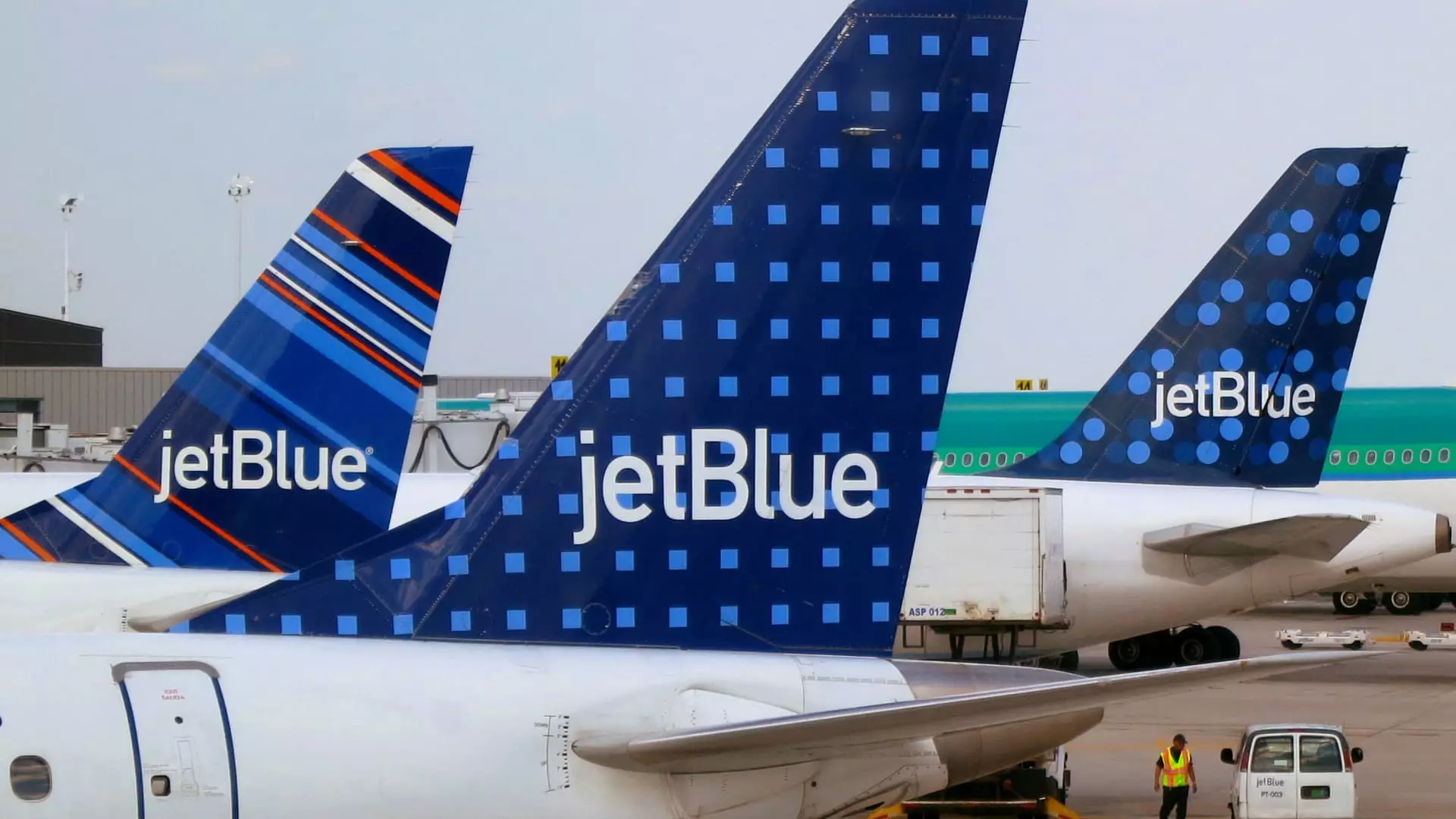In a move that marks a significant moment in the aviation industry, the U.S. Department of Transportation (DOT) has imposed a $2 million fine on JetBlue Airways for a pattern of chronically delayed flights. This fine represents the first time the DOT has taken such disciplinary action against an airline of this magnitude, sending a clear message to the industry about the importance of reliability in air travel. It highlights the DOT’s commitment to ensuring that airlines adhere to realistic scheduling that reflects operational conditions rather than mere financial aspirations.
The disruptions encompassed four specific routes, primarily serving as links between JetBlue’s hub at John F. Kennedy International Airport (JFK) and other key locations including Raleigh-Durham International Airport in North Carolina, Fort Lauderdale and Orlando in Florida, as well as JFK and Windsor Locks, Connecticut. The identified delays reportedly occurred at least 145 times over an 18-month span, raising questions about JetBlue’s operational strategy and commitment to customer satisfaction.
According to the DOT, a flight is categorized as „chronically delayed“ if it operates at least ten times a month and is late more than 30 minutes on more than half of those departures. Based on this criterion, JetBlue accounted for over 70% of the disruptions across the identified routes. This statistic suggests a systematic issue within the airline’s scheduling practices, leading to operational failures that directly impact passengers’ travel experiences.
Transportation Secretary Pete Buttigieg emphasized the necessity for airlines to set realistic expectations for flight schedules. The accountability falls squarely on the airlines themselves, asserting that they must conform to operational realities rather than artificially inflating capacity. This perspective sends a ripple of concern through the airline industry, compelling carriers to evaluate and adapt their scheduling processes.
JetBlue, in defense of its operations, pointed to external factors as well, arguing that the U.S. government bears some responsibility for air traffic issues. The airline echoed sentiments shared by other major carriers, including Delta and United, claiming that a lack of air traffic controller staffing and outdated technology plays a crucial role in operational delays. The argument positions JetBlue not merely as a lone offender but as part of a broader ecosystem facing significant regulatory and operational challenges.
The airline also noted that it has been taking steps to mitigate delays, emphasizing a desire for a robust and modern air traffic control system that can adequately serve the complexities of contemporary air travel. JetBlue’s contention suggests a multifaceted approach to resolving the issues at play, demanding improvements not just from itself but from the federal government.
The financial implications of the $2 million fine extend beyond the immediate penalty; JetBlue stands to receive credit amounting to $1 million for compensation already provided to affected passengers, along with additional vouchers. This aspect illustrates the DOT’s approach to integrating passenger welfare into the penalty structure, recognizing that financial reparations are a vital element in maintaining consumer trust in the airline industry.
Furthermore, the DOT is not stopping at JetBlue. Investigations into other airlines regarding unrealistic scheduling are ongoing, underscoring a broader initiative to hold airlines accountable for operational performance. This could pave the way for an era of heightened scrutiny and regulatory oversight in a sector increasingly characterized by consumer complaints about delays and cancellations.
As the aviation landscape evolves, the implications of the JetBlue case highlight a crucial turning point for the airline industry. This unprecedented penalty signifies not only the DOT’s dedication to passenger rights but also its willingness to enforce accountability among carriers. Whether airlines heed the call for operational improvements remains to be seen, but one thing is clear: passengers will no longer accept chronic delays without consequences. The future of air travel hinges on an industry that can marry operational efficiency with customer expectations, ensuring that schedules are not just promises but realities.


Napsat komentář